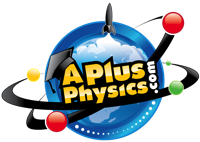Stagnation
I need to make some changes in my classroom. I feel as though class performance is stagnating. Sure, I looked at last year’s data, took many opportunities to reflect on what worked and what didn’t, and revised for this year accordingly. I pre-assess, modify, post-assess, and adjust several times a week, if not several times in the same lesson. But it seems no matter what I do, within my current comfort zone there’s still a group of students I’m just not reaching, and I’m not seeing the level of improvement in results I would hope to as I continue to grow as a physics teacher.
So what’s going on? This is the question I’ve been struggling with for several months now. This year seems especially tough. I’ve been told by previous teachers of this class of students that they require a larger push than previous classes, but there’s more to it than that. I find many of my students are more interested in chasing points and grades than they are in learning. After every exam I hear requests for “make-up” tests or points for corrections, yet preparations for the initial assessment are lacking… homework doesn’t get done, and much of the homework that is done is incomplete. Students do the problems they’re comfortable with, and skip the ones they need practice with! I’ve tried grading homework, even though I’m not a fan of “points” as a motivator. This has pushed more students into my classroom for “how-to” help the moment before the assignments are due, but instead of working to truly understand the problem, the students push hard for just enough to answer the problem and then bolt out the door. Learning has taken a back seat to point gathering.
Many who are performing better on standardized assessments come into class bragging about how they didn’t know anything, crammed for a few hours the night before the exam, and then tell their peers (in front of me) that they’ve already forgotten the material. This isn’t building true understanding, and as we all know, physics builds upon itself. It’s a holistic science that takes years to understand. A solid foundation in all the different aspects and applications provides the framework toward making the connections that will later allow for truly understanding the world around us.
I’ve incorporated more hands-on work, practical applications, challenges, authentic assessments, projects, etc. than in any year previous. We’ve built catapults. We’ve modeled motion graphs with cars, with people, by hand, with motion detectors. We’ve investigated crime scenes to understand projectile motion. We’ve analyzed car crashes to understand momentum. We’ve launched a rocket to demonstrate Newton’s 3rd Law… but for many, these activities are becoming an effort in meeting the absolute minimum requirements as quickly and carelessly as possible.
Something has to change.
I feel as though I’m assessing constantly… and in many different ways. Students are given opportunities to demonstrate their learning in a model of differentiation across both interests, current skill level, and media. Want to do your lab report as a poster? A comic book? A rap song? A Powerpoint? A video? A skit? A conversation? A written exam? Sure, why not… Up for the challenge of going a bit beyond the basic expectations? I believe in you, let’s see what you can do. Having trouble nailing down where to start? Let’s talk about goals and work backwards to help you create a plan.
It helps, but something is still missing. I’m assessing work and projects. I’m assessing based on skill and, much as I try to avoid it, effort. I’ve believed that if students put the effort in, the learning will come, and my grading style has reflected this. But students have learned the game, so to speak, and attempt to demonstrate to me a large effort, by showing a large volume of sub-standard work. I want to encourage them to make their learning meaningful. I don’t want my students spending hours and hours each night on physics. I want them engaged and focused in the classroom. I want them spending a reasonable amount of time outside of class working productively to do what they need to in order to be successful. In short, I want them working smarter, not harder.
So then, why am I assessing work? I’m a firm believer after several years in engineering and industrial management that you set up your metrics to drive behaviors. With the right metrics in place, students and employees will work to meet those metrics. I spent more than 10 years at two different companies and in four different jobs preaching this to anyone who would listen. So what happened to change my thinking when I became a teacher?
It seems so obvious when I stop to think about it… especially when my metrics are so clearly defined. I even write my objectives at the beginning of each lesson, and usually share them with my students! I organize and plan my entire curriculum around learning objectives. The objectives, the standards, the proficiencies — these are my true metrics. These are my goals. These are what I need to be grading students on, not work or projects. Where do you go next? Welcome to standards-based grading (SBG). I don’t expect this to be a fix-all utopia of physics teaching. But it’s a step toward measuring and communicating goals and expectations clearly with my students, and that has to be a strong first step.
I don’t have the answers, I don’t even have the questions. But now I at least feel as though I’m on a path to finding the right questions to ask.
